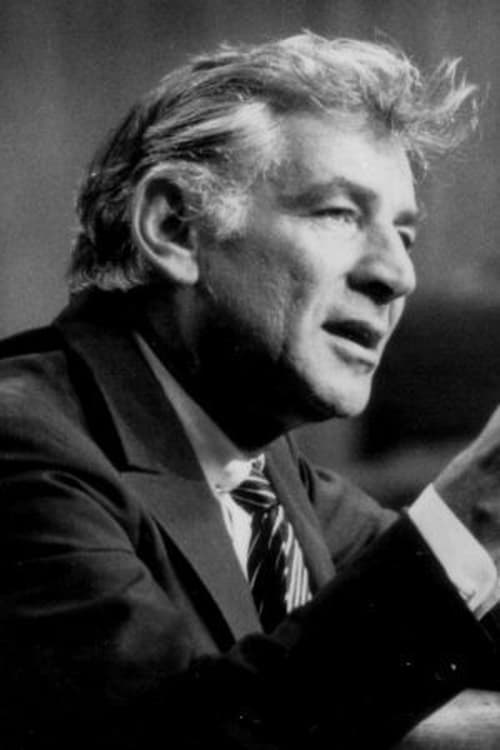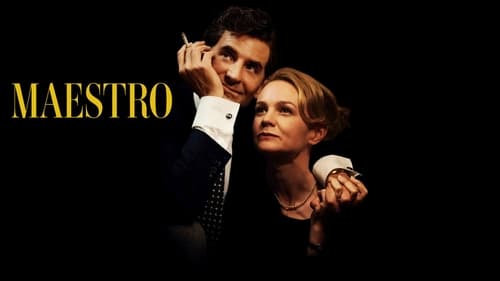
Original Music Composer
A towering and fearless love story chronicling the lifelong relationship between Leonard Bernstein and Felicia Montealegre Cohn Bernstein. A love letter to life and art, Maestro at its core is an emotionally epic portrayal of family and love.
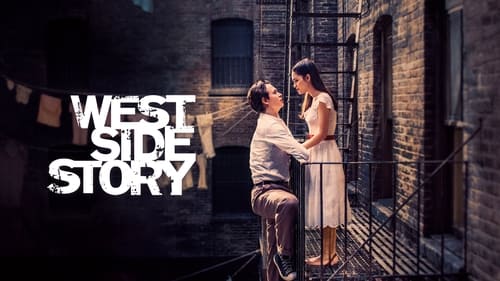
Songs
Two youngsters from rival New York City gangs fall in love, but tensions between their respective friends build toward tragedy.

Original Music Composer
Two youngsters from rival New York City gangs fall in love, but tensions between their respective friends build toward tragedy.

Self (archive footage)
An enlightening, complex look at one of the greatest figures in 20th century classical music whose passion and creativity guided him well beyond the concert hall.

Music
Broadway Cares/Equity Fights AIDS presents a 2013 concert celebrating Chita Rivera's 80th birthday as a fundraiser to aid struggling artists during the pandemic. Chita offers a musical retrospective of her career in the theatre with guest stars Tommy Tune and Ben Vereen. Includes songs from 'Seventh Heaven,' 'West Side Story,' 'Bye Bye Birdie,' 'The Happy Time,' 'Jacques Brel Is Alive and Well and Living in Paris,' 'Chicago,' 'The Rink,' 'Kiss of the Spider Woman,' & 'The Visit,' among others.

Music
Enjoy Ravinia Festival’s production of Leonard Bernstein’s theater piece starring Tony Award-winning baritone Paulo Szot and featuring the Chicago Symphony Orchestra. Baltimore Symphony Orchestra artistic director Marin Alsop conducts.
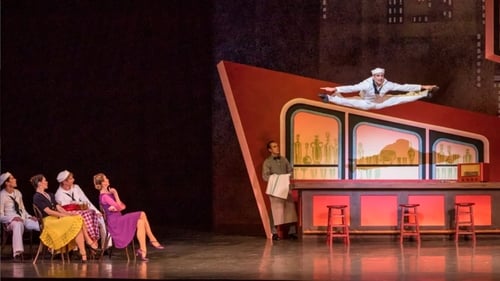
Original Music Composer
Jerome Robbins considered the Paris Opera Ballet as his second home after the New York City Ballet. This production in his honour brings together works displaying the infinite diversity of his sources of inspiration and his genius on stage. Be it in the energy of the large-scale Glass Pieces or the intimate sweetness of Afternoon of a Faun and A Suite of Dances, there emerges that rare capacity to make bodies follow the flow in a living comprehension of music. As the celebrated ballet Fancy Free, a veritable theatrical portrait of an era, enters the repertoire, Robbins reveals another facet of his talent.

Original Music Composer
John Wilson and the London Symphony Orchestra present the hit Broadway musical On the Town live from the Royal Albert Hall. With classic numbers such as New York, New York and l Can Cook Too and a star-studded line-up of singers including Nathaniel Hackmann and Louise Dearman, this concert performance launches a packed bank holiday weekend of Proms tributes to the late composer and conductor Leonard Bernstein, who would have been 100 years old on 25 August 2018. Katie Derham presents, with special guest Clarke Peters.

Music
Matthew Eberhardt brings 1950s suburbia to life in Leonard Bernstein’s colourful criticism of American consumerism. This performance stars Wallis Giunta, winner of the Young Singer Award at the 2018 International Opera Awards, in the role of Dinah.

himself

Music
Who can resist Bernstein on Broadway? Toast the New Year and our Laureate Conductor’s 100th with West Side Story’s star-crossed lovers, On the Town’s fun-loving sailors, and Wonderful Town’s bright-eyed New Yorkers as portrayed by Tony winner Annaleigh Ashford, Hamilton’s Christopher Jackson, Cinderella’s Laura Osnes, and Next to Normal’s Aaron Tveit. Audience favorite Bramwell Tovey conducts.

Music
With a keen sensitivity to the demands and specificities of the American “musical”, and after the triumph of Sondheim’s Follies in 2015, the Opéra de Toulon once again embarked on a Broadway adventure with the French premiere of Bernstein’s Wonderful Town, and brought back for the occasion stage director Olivier Bénézech, a major connoisseur of the genre. A true declaration of love to the city of New-York, Wonderful Town tells the tale, with a boisterous rhythm and vast amounts of jazzy tunes, of two sisters from Ohio looking for success and glory in the big city. Lighter in tone than later works like West Side Story or Candide, its smart combination of the different musical traditions one could hear when wandering in the streets of New-York, its accomplished orchestral writing and colouring, and its vivid sense of comedy earned it no less than five Tony awards when it premiered in 1953.

Self
As the world prepares to celebrate the 60th anniversary of West Side Story in 2017, dancer Bruno Tonioli and broadcaster Suzy Klein go in search of the true stories behind the inception of this classic show. For the first time on television, they hear first-hand from those involved in the show when it opened on Broadway in September 1957, including Sondheim himself, producer Hal Prince and original cast members from both show and movie, including Chita Rivera Carol Lawrence and Rita Moreno. With the BBC Symphony Orchestra and specially cast singers, we re-live some of the wonderful music and, in the company of Suzy and Bruno, we discover how West Side Story placed the 1950s phenomena of racial tension and teenage gangs centre stage to create a hit that changed musical theatre forever.

Himself
The document explores Leonard Bernstein's various facets as a conductor, a composer, a pianist and most of all a teacher and how he influenced so many people. It includes interviews of his children, former conductor students, orchestra members, collabrators and other acquintanses.
- Pascal Kay

Self (archival footage)
A documentary on the mysterious and influential pianist.

Self (archive footage)
With a career that includes a 35-year tenure as composer of the Berlin Philharmonic and record sales topping 200 million, Herbert von Karajan is one of the most legendary figures in 20th-century classical music. Comprised of archival footage, performance highlights and interviews with the likes of Anne-Sophie Mutter, Christa Ludwig and Seiji Ozawa, this retrospective chronicles the life and times of the iconic Austrian maestro.

Conductor
Leonard Bernstein conducts three symphonies by Ludwig van Beethoven: Symphony no. 3 in E flat major, op 55 ('Eroica'), Symphony no. 4 in B flat major, op 60 and Symphony no. 5 in C minor, op 67, all performed by Wiener Philharmoniker in Vienna in 1977-8.

Music
Leonard Bernstein discusses his Boston childhood, his musical growth at Harvard and the Curtis Institute and the influence of great masters like Reiner, Mitropoulos and Koussevitzky. He shares his feelings on the primacy of tonal music and speculates on the nature of the creative process. From Carnegie Hall, scene of his début, to the living room of his home and his private studio overlooking New York's Central Park, Reflections explores the artist's varied and colourful career.

Himself
Leonard Bernstein discusses his Boston childhood, his musical growth at Harvard and the Curtis Institute and the influence of great masters like Reiner, Mitropoulos and Koussevitzky. He shares his feelings on the primacy of tonal music and speculates on the nature of the creative process. From Carnegie Hall, scene of his début, to the living room of his home and his private studio overlooking New York's Central Park, Reflections explores the artist's varied and colourful career.

LUDWIG VAN BEETHOVEN
Symphonies Nos. 1, 8 & 9 Performed by
Gwyneth Jones · Hanna Schwarz
René Kollo · Kurt Moll In Vienna at the Konzertvereinigung With the Wiener Staatsopernchor
and the Wiener Philharmoniker
Leonard Bernstein, conducting

Himself
Between 1981 and 1984 Leonard Bernstein recorded nearly all of Brahms' orchestral works with the Wiener Philharmoniker to honour the 150th anniversary of the composer's birth in 1983. For the concertos, Bernstein enlisted the services of some of the finest Brahms interpreters of the time: the violoninst Gidon Kremer, the cellist Mischa Maisky and the pianist Krystian Zimerman. Seeing Bernstein enjoying himself while conducting the Vienna Philharmonic in these lighter, familiar works by Brahms added to the pleasure I got from them. The Academic Festival Overture is especially well done. Some conductors don't seem to get it, but Bernstein did.

Mischa Maisky performs with the Vienna Symphony and Vienna Philharmonic conducted by Leonard Bernstein in concertos by Haydn and Schumann.

Writer
Candide is a comic operetta written by Leonard Bernstein in 1956. The story is based on a novella by Voltaire, a satire about a man named Candide and his journey to becoming much more world weary. Recorded live at the Teatro Argentina, Rome.

Music
Candide is a comic operetta written by Leonard Bernstein in 1956. The story is based on a novella by Voltaire, a satire about a man named Candide and his journey to becoming much more world weary. Recorded live at the Teatro Argentina, Rome.

Self - Conductor
Released as a memorial for the great Russian cellist Mstislav Rostropovich, who passed away on 27 April 2007, this DVD contains one bonafide cello concerto, the Schumann Cello Concerto in A minor, and two tone poems with prominent cello parts, Ernest Bloch's Schelomo and Richard Strauss' Don Quixote. Rostropovich mastered the Schumann in several famous recordings. Here, conducted by Leonard Bernstein, he provides a splendid performance. Featuring his trademark powerful technique, smooth legato and crisp vibrato, the Romantic roots of the concerto are never hidden for long, despite the relatively cool playing of the Orchestre National de France.

conductor
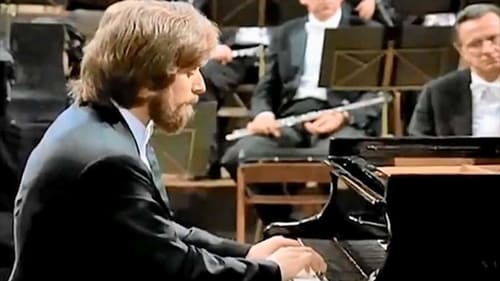
Himself
Under the guidance of famed American composer and conductor Leonard Bernstein, Polish classical pianist Krystian Zimerman and the Vienna Philharmonic deliver a rousing performance of Ludwig van Beethoven's Piano Concertos nos. 3, 4 and 5. Premiered in 1808, Beethoven's fourth concerto marked the last time the composer would take the stage as a soloist with an orchestra.

Conductor
This is the historic concert performance of the final operatic version of Bernstein's Candide. It was recorded on December 13, 1989 at the Barbican Centre, with Leonard Bernstein conducting the London Symphony Orchestra and Chorus, with a stellar cast of operatic stars gracing the solo parts. The programme lasts a full 2hrs 27 mins. It marks the end of a long and tortured journey for the musical/operetta that spent much of its first 35 years as an orphan in the musical wilderness.

Conductor
This performance of Mozart's Great Mass in C minor, which remained an unfinished torso, is reverent and highly dramatic. It was filmed 4-6 April 1990 in the beautiful Baroque Basilica of Waldsassen in Bavaria: a few kilometers from the Czech border. It was filmed just a few months after the Iron Curtain had fallen, a mere 6 months before Bernstein's death on 14 October 1990. His painful, labored breathing is evident during this performance. It is a sad reminder of what is to come and it makes this performance, so other-worldly in many ways, particularly poignant. Bernstein conducts the splendid Chor und Symphonieorchester des Bayerischen Rundfunks.

The National Orchestra of France performs in the sumptuous Theatre des Champs Elysees before a Parisian audience. Leonard Bernstein conducts Ravel's virtuoso piano concerto from the keyboard. Starring: Bernstein, National Orchestra Of France, Marilyn Horne (vocalist), Boris Belkin (violin)

Conductor
Filmed on tour at Berlin's Philharmonie, this account of the valedictory Ninth Symphony is an intense interpretation, expressing Bernstein's conviction that modern man had at last caught up with the message encoded in Mahler's last completed work. Having made his famous 1966 studio recording of "Das Lied von der Erde" in Vienna, Bernstein re-recorded this in Israel with the same searing subjectivity. René Kollo draws on the voice of a great Wagner tenor, while Christa Ludwig, the greatest exponent of the contralto songs at the time, is unbearably poignant in the final movement's fusion of elation and sadness.

Writer
Timeless traditions and contemporary anxieties clash musically and theatrically in Leonard Bernstein's powerful but rather neglected "Theatre Piece for Singers, Players and Dancers," The dancers are omitted in this semi-staged performance, produced for the Vatican's Jubilee 2000 celebration, but the show's eclectic musical brilliance, its adept mingling and clash of musical styles, its contrasts of hope and anxiety, faith and unbelief, ancient serenity and modern dissatisfaction are all brilliantly conveyed. More than 30 years after its premiere, for the opening of the Kennedy Center for the Performing Arts in Washington, D.C., Mass still has the impact of this morning's newspaper headlines.

Musical
The classic musical by Bernstein, Comden and Green is performed live in concert in Berlin, starring Audra McDonald, Thomas Hampson, Brent Barrett and Kim Criswell, and conducted by Simon Rattle.

Music
The classic musical by Bernstein, Comden and Green is performed live in concert in Berlin, starring Audra McDonald, Thomas Hampson, Brent Barrett and Kim Criswell, and conducted by Simon Rattle.

Music
An in-depth analysis and celebration of the famous "I coulda been a contender" scene between Marlon Brando and Rod Steiger in the 1954 film "On the Waterfront".

Writer
Leonard Bernstein was on his honeymoon in 1951 when he began composing his one-act opera, Trouble in Tahiti, a candid portrait of the troubled marriage of a young suburban couple. Written between his biggest Broadway successes— On the Town in 1944 and Candide and West Side Story in 1956 and 1957, respectively— Trouble in Tahiti draws upon popular songs styles to deliver an uncompromising critique of post-war American materialism. Beneath the couple's marital discord is a profound longing for love and intimacy. Their spiritual emptiness, in contrast to a veneer of happy consumerism, creates the heart of the drama and is emphasized by sudden stylistic shifts in the music.
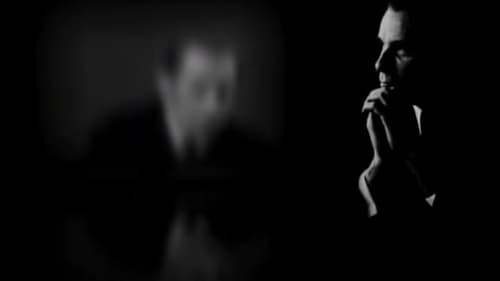
Self (archival footage)
A collection of recollections and opinions of and about Glenn Gould, interspersed with excerpts of archive footage of the great Canadian pianist speaking and playing.
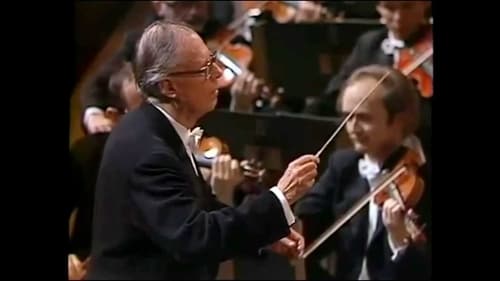
Self (archive footage)
Documentary about sixteen great conductors of the 20th century.

The New York Philharmonic takes the stage of the Sydney Opera House for their Australian debut, and acclaimed conductor Leonard Bernstein is there to guide them through Tchaikovsky's "Sixth Symphony" in this performance captured live on film in 1974 and directed for the screen by Noel Clark.

Writer

Lyricist

Music

Commentator

Conducted by Leonard Bernstein, this is an historic performance marking the fall of the Berlin Wall. Performed on Christmas Day 1989 in the former East Berlin, a concert that unites an cast former eastern and western Berlin musicians and vocalists, among with an international cast of musicians, for a moving performance of Beethoven's Ninth Symphony.

Music
Bernstein's comic opera, based on Voltaire's classic satire, directed by Jonathan Miller and John Wells, is performed in a new production by Scottish Opera.

"The Rite of Spring is all about sex and reproduction. This is a beastly music brought to the highest, most refined point."

Music
The legendary Harold Prince directs Bernstein's perennial favorite Candide, which premiered at New York City Opera under his direction in 1982 and became a staple of the company's repertoire.

Writer
The legendary Harold Prince directs Bernstein's perennial favorite Candide, which premiered at New York City Opera under his direction in 1982 and became a staple of the company's repertoire.

Music
"A Quiet Place" is an American opera in three acts, with music by Leonard Bernstein to a libretto by Stephen Wadsworth. The work is a sequel to Bernstein's 1951 short opera Trouble in Tahiti. In its initial form A Quiet Place was in one act; the premiere, on June 17, 1983, was a double bill: Trouble in Tahiti, intermission, A Quiet Place. In its three-act form, which appeared in 1984, Act Two of A Quiet Place largely consists of Trouble in Tahiti in flashback. This is a German Television broadcast of the 1986 Vienna State Opera production, conducted by Leonard Bernstein.

Conductor
"A Quiet Place" is an American opera in three acts, with music by Leonard Bernstein to a libretto by Stephen Wadsworth. The work is a sequel to Bernstein's 1951 short opera Trouble in Tahiti. In its initial form A Quiet Place was in one act; the premiere, on June 17, 1983, was a double bill: Trouble in Tahiti, intermission, A Quiet Place. In its three-act form, which appeared in 1984, Act Two of A Quiet Place largely consists of Trouble in Tahiti in flashback. This is a German Television broadcast of the 1986 Vienna State Opera production, conducted by Leonard Bernstein.

Music
Schwartz reordered and combined angular contours, broken planes, and distorted proportions in her own pictorial structures in an homage to Picasso's style.

Himself
This television essay from 1985 was written by Leonard Bernstein to commemorate the 125th anniversary of Gustav Mahler's birth. Recorded in Israel, Vienna and later in London, it is punctuated by biographical interludes and illustrated by musical examples drawn from the cycle of Mahler's works recorded by Bernstein. Bernstein talks, plays and conducts various orchestras (Israel Philharmonic Orchestra, London Philharmonic Orchestra, Wiener Philharmoniker) and soloists (Janet Baker, Christa Ludwig, Edith Mathis, Lucia Popp, Walton Groenroos) in performances spanning 17 years. Leonard Bernstein also examines the roots of Gustav Mahler's inspiration. The programme also features music from the nine symphonies, 'The Song of the Earth' and the 'Wunderhorn Cycle'.

Self / Conductor
A documentary which shows, in great detail, the making of the 1985 Bernstein-conducted recording of the entire score of "West Side Story", featuring operatic stars.

Music
A documentary which shows, in great detail, the making of the 1985 Bernstein-conducted recording of the entire score of "West Side Story", featuring operatic stars.

Self
This special is the second "Night of 100 Stars" to benefit The Actors Fund of America. Edited from a seven-hour live entertainment marathon that was taped February 17, 1985, at New York's Radio City Music Hall, this sequel to the 1982 "Night of 100 Stars" special features 288 celebrities.

Conductor
Between 1981 and 1984 Leonard Bernstein recorded nearly all of Brahmss orchestral works with the Wiener Philharmoniker to honor the 150th anniversary of the composer's birth in 1983. For the concertos, Bernstein enlisted the services of some of the finest Brahms interpreters of the time: the violoninst Gidon Kremer, the cellist Mischa Maisky and the pianist Krystian Zimerman. Leonard Bernstein, Krystian Zimerman, and the Wiener Philharmoniker, it's very hard to get a better group of musicians for these masterpieces. Mr. Zimerman and Mr. Wolfgang Herzer's piano cello duets in the third movement of Brahms' second is simply tearful.

dirigent

Himself
Here is the most convincing presentation of Brahms' symphonies that I personally have ever experienced. There is no explaining a gift like Leonard Bernstein, a true legend and one of the truly great ones of the 20th century (and a great Brahms conductor!). I have followed his career and recordings both at the NY Philharmonic and at Vienna (other places too). His brilliance and incandescence are revelatory in these Brahms performances. His view of a thorough-going romantic Brahms expressing his passionate control of an inner rage in classical form is convincing. He and this great Vienna orchestra give a consistent statement of it. And, of course, Bernstein's introductory comments are without peer.

Conductor
In celebration of its 100th anniversary in 1983, the Metropolitan Opera hosts a four-hour performance uniting some of the world's most spellbinding opera singers and conductors. The event includes a ballet from Samson et Dalila and boasts incredible classical performances from Kathleen Battle, Plácido Domingo, Jose Carerras, Leonard Bernstein, Marilyn Horne, Leona Mitchell, Luciano Pavarotti and many more.

Himself
A portrait of one of England's greatest composers. Winner of the Prix Italia.

Conductor
Excellent Bernstein performance. Interesting version for String Orchestra. Interesting video details to introduce your friends to classic orchestral music (lets them to understand the sound of each instrument the music comes from).

Conductor
This production is a gala affair; the sets are traditional (evocative of 18th-19th century Spain); the lighting is bright, so colors are good and one can see all of the action. Singers are generally well chosen and perform admirably. However, at this point, slight reservations creep in; although Janowitz (Fidelio/Leonore) and Kollo (Florestan) look "good" and act well, the singing parts tax them a bit when pushed to the limit. Most of the time that doesn't matter, and an argument can be made that a little vocal strain is in character with their dire plight. Ideally, for me, Vickers as Florestan would have added extra vocal heft and more sensitive acting than Kollo.

Self / Conductor
Leonard Bernstein performs three of his own compositions with the Israel Philharmonic Orchestra at the Philharmonic in Berlin.

Conductor
For Mahlerites, his symphonies are much more than musical performances--they can be an emotional or spiritual journey through the struggles, fears, and triumphs of life. This Sixth Symphony is a 1976 performance in the Vienna Musikvereinssaal with PCM stereo and DTS 5.1. The 2 dvd set also includes the 4th and 5th symphonies, which are performed as magnificently as the Sixth.

"Four Ways to Say Farewell" is a personal introduction to Mahler and his Ninth Symphony, during which Leonard Bernstein is seen and heard rehearsing the Vienna Philharmonic Orchestra. Filmed in 1971, this rehearsal was directed by Humphrey Burton,

Conductor
In a pair of passionate performances, American composer Leonard Bernstein conducts the New York Philharmonic in Tchaikovsky's Symphony no. 4 and Andante Cantabile, then leads the Boston Symphony Orchestra in the Russian composer's Symphony no. 5. Russian violinist Boris Belkin also makes his American debut as the soloist in Tchaikovsky's Violin Concerto in D Major.

Himself
Leonard Bernstein made these recordings during his wonderfully productive collaboration with the Wiener Philharmoniker in the mid-1970s when he was at the peak of his career. Humphrey Burton's direction is, as always, very fine, giving the viewer/listener both the larger picture and highlighting individual soloists, players or groups of musicians and, of course, the maestro. The video and audio tracks show their age, but are quite acceptable even for today's standards. Bernstein's Seventh is everything one could desire: dark and spooky, highly sensual, but also structurally strong and assertive where needed. Bernstein's reading does not gloss over breakdowns in tonality and the foreshadowing of later musical developments.

Conductor
Leonard Bernstein's 1952 opera is a biting satire on the emptiness of materialist values and the false promise of suburban comforts. This production, conducted by the composer himself, presents a live-action cast performing on an animated set. Inspired by jazz and American musical comedy, the score is a path-breaking fusion of lyric art with popular entertainment.

Writer
Leonard Bernstein's 1952 opera is a biting satire on the emptiness of materialist values and the false promise of suburban comforts. This production, conducted by the composer himself, presents a live-action cast performing on an animated set. Inspired by jazz and American musical comedy, the score is a path-breaking fusion of lyric art with popular entertainment.

Himself
Beginning with the First Symphony, Bernstein reveals Mahler's position at the hinge of modernism, while emphasizing his emotional extremism. The uplifting Second "Resurrection" Symphony, with which Bernstein had an especially long and close association, is recorded here in a historic performance from 1973, set in the Romanesque splendor of Ely Cathedral. In the Third, Bernstein encompasses the symphony's spiritual panorama like no other conductor, with the Vienna Philharmonic players alive to every nuance.

Self (conductor and commentator)
During a break in rehearsals with the Israel Philharmonic, Leonard Bernstein sat down at the piano to film an introduction to the poetry and music of Gustav Mahler's Das Lied von der Erde.

Writer
In this documentary portrait prepared for the anniversary of Ludwig Van Beethoven's 200th birthday, Leonard Bernstein illustrates his analysis with excerpts from his performances of Beethoven's Piano Concerto No. 1 in C Major and the Ode to Joy from the Ninth Symphony.

Musician
In this documentary portrait prepared for the anniversary of Ludwig Van Beethoven's 200th birthday, Leonard Bernstein illustrates his analysis with excerpts from his performances of Beethoven's Piano Concerto No. 1 in C Major and the Ode to Joy from the Ninth Symphony.

Conductor
In this documentary portrait prepared for the anniversary of Ludwig Van Beethoven's 200th birthday, Leonard Bernstein illustrates his analysis with excerpts from his performances of Beethoven's Piano Concerto No. 1 in C Major and the Ode to Joy from the Ninth Symphony.

Self / Narrator
In this documentary portrait prepared for the anniversary of Ludwig Van Beethoven's 200th birthday, Leonard Bernstein illustrates his analysis with excerpts from his performances of Beethoven's Piano Concerto No. 1 in C Major and the Ode to Joy from the Ninth Symphony.

Self / Conductor / Pianist
In Vienna's Musikverein, Leonard Bernstein and the Vienna Philharmonic celebrates Ludwig Van Beethoven's 200th birthday with a joyful performance of his Piano Concerto No. 1 in C Major. Maestro Bernstein conducts the orchestra from the keyboard in this historic concert.

Self / Conductor
To play Beethoven's music is to give oneself over completely to the child-spirit which lived in that grim, awkward, violent man. Without that utter submission it is impossible to play the Adagio of the Ninth. Or, Heaven knows, the first movement. And the Finale? Most of all! It is simply unplayable unless we go all the way with him, as he cries out "Brüder!" - Leonard Bernstein

Self (archive footage)
Constructed from a wealth of archival footage, the documentary follows Dr. Martin Luther King, Jr. from 1955 to 1968, in his rise from regional activist to world-renowned leader of the Civil Rights movement. Rare footage of King's speeches, protests, and arrests are interspersed with scenes of other high-profile supporters and opponents of the cause, punctuated by heartfelt testimonials by some of Hollywood's biggest stars.

Music

Self
Documentary on the "Rock Revolution".

Interviewee
BBC television program exploring Visconti’s mastery of cinema, theater, and opera direction.

Music
In the slums of the upper West Side of Manhattan, New York, a gang of Polish-American teenagers called the Jets compete with a rival gang of recently immigrated Puerto Ricans, the Sharks, to "own" the neighborhood streets. Tensions are high between the gangs but two romantics, one from each gang, fall in love leading to tragedy.

Songs
Ruth Sherwood and her sister, Eileen, have moved to 1935 Greenwich Village. They're surrounded by colorful Village characters (including an out-of-work football player known as the Wreck, and Mr. Appopolous, a modern painter and their landlord) and embark on various New York adventures. Ruth, who's trying to make it as a writer, meets up with a sleazy newspaper writer named Chick and a kindly editor named Bob, both of whom take an interest in both her career and her.

Music
Ruth Sherwood and her sister, Eileen, have moved to 1935 Greenwich Village. They're surrounded by colorful Village characters (including an out-of-work football player known as the Wreck, and Mr. Appopolous, a modern painter and their landlord) and embark on various New York adventures. Ruth, who's trying to make it as a writer, meets up with a sleazy newspaper writer named Chick and a kindly editor named Bob, both of whom take an interest in both her career and her.

In this 1957 biography film of the jazz-great Louis "Satchmo" Armstrong, he and his band tour the world as American good-will ambassadors bring jazz at its best to the people of the world. Within the film, the life of Louis Armstrong is portrayed through the music. One of the outstanding scenes in this "biography/docudrama" shows blind songwriter W. C. Handy, with tears streaming down his face, as Armstrong, backed by Leonard Bernstein leading the New York Philharmonic Orchestra, play Handy's immortal "St. Louis Blues."
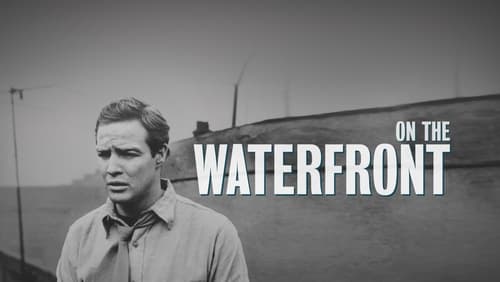
Original Music Composer
Terry Malloy dreams about being a prize fighter, while tending his pigeons and running errands at the docks for Johnny Friendly, the corrupt boss of the dockers union. Terry witnesses a murder by two of Johnny's thugs, and later meets the dead man's sister and feels responsible for his death. She introduces him to Father Barry, who tries to force him to provide information for the courts that will smash the dock racketeers.
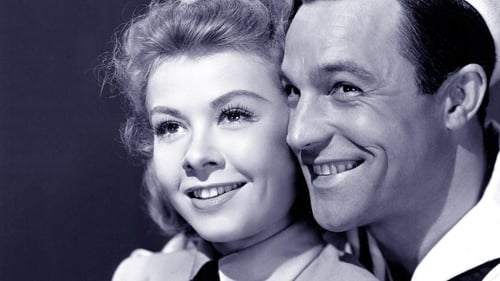
Music
Three sailors - Gabey, Chip and Ozzie - let loose on a 24-hour pass in New York and the Big Apple will never be the same! Gabey falls head over heels for "Miss Turnstiles of the Month" (he thinks she's a high society deb when she's really a 'cooch dancer at Coney Island); innocent Chip gets highjacked (literally) by a lady cab driver; and Ozzie becomes the object of interest of a gorgeous anthropologist who thinks he's the perfect example of a "prehistoric man". Wonderful music and terrific shots of New York at its best.

self
One of the first US born conductors to receive worldwide fame, Leonard Bernstein is an exceptional composer and certainly not only due to The West Side Story. Instead of concentrating exclusively on his most famous work, Thomas von Steinaecker sets out to paint a complete picture of Bernstein. Thus, the documentary focusses on the American’s less known later works and on three compositions in particular: his Mass, the musical 1600 Pennsylvania Avenue and the great final opera A Quiet Place. The film paints a vivid picture of the multitalented Bernstein, struggling with his role as composer and conductor, tackling the tension between successes and flops, between the politics of his time and his own liberal humanitarian claim. It looks back on Bernstein’s major achievements, such as his acclaimed conducting of Mahler and his involvement in the Young People’s Concerts, and it shows Bernstein’s work with young aspiring musicians as well as his political commitment.

Director
Great presentation of the legendary american conductor Leonard Bernstein, the Vienna Philharmonic Orchestra, Christa Ludwig (contralto solo), the Vienna State Opera Chorus and the Vienna Boys Choir playing the Symphony No. 3 of Gustav Mahler, in 1973.
